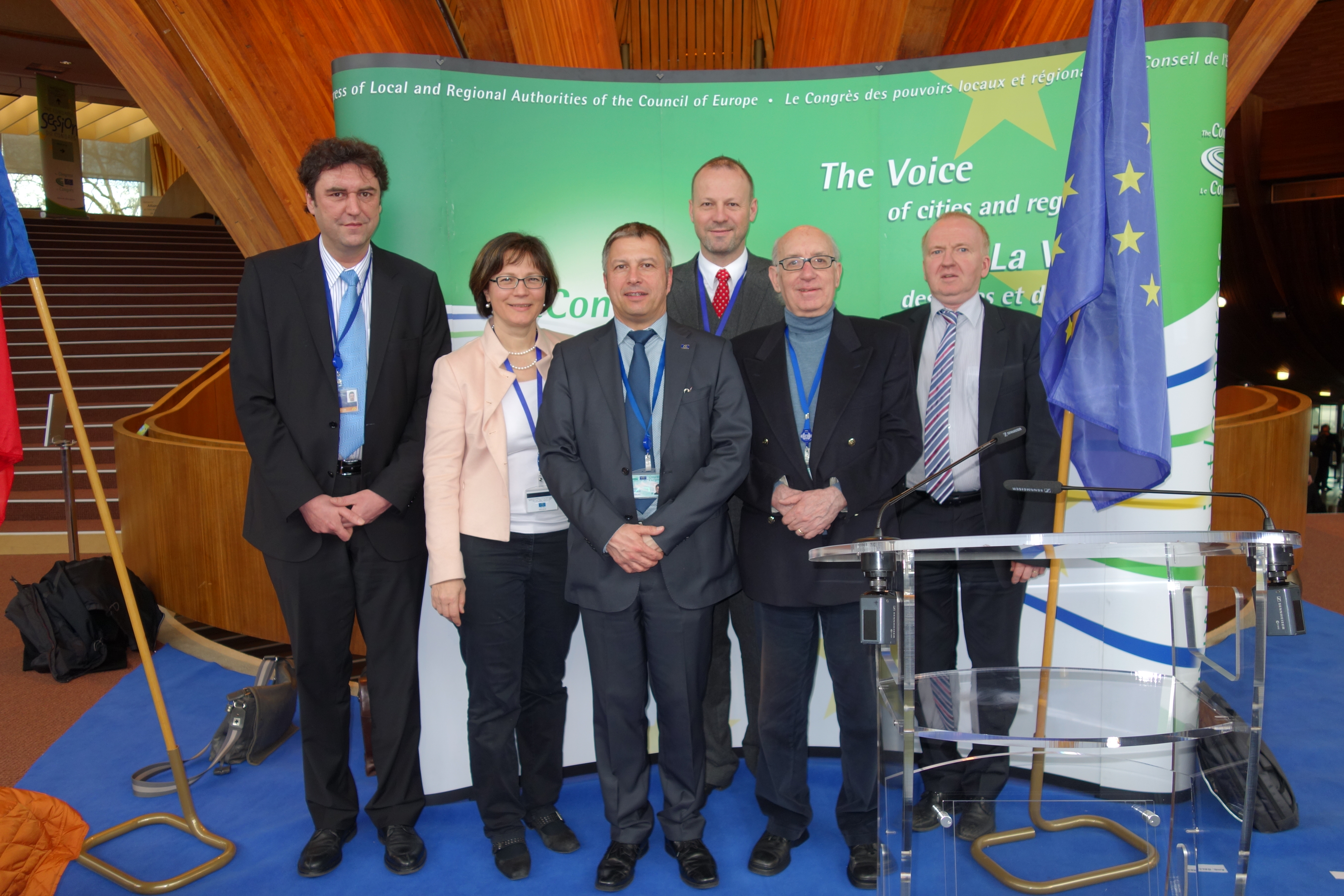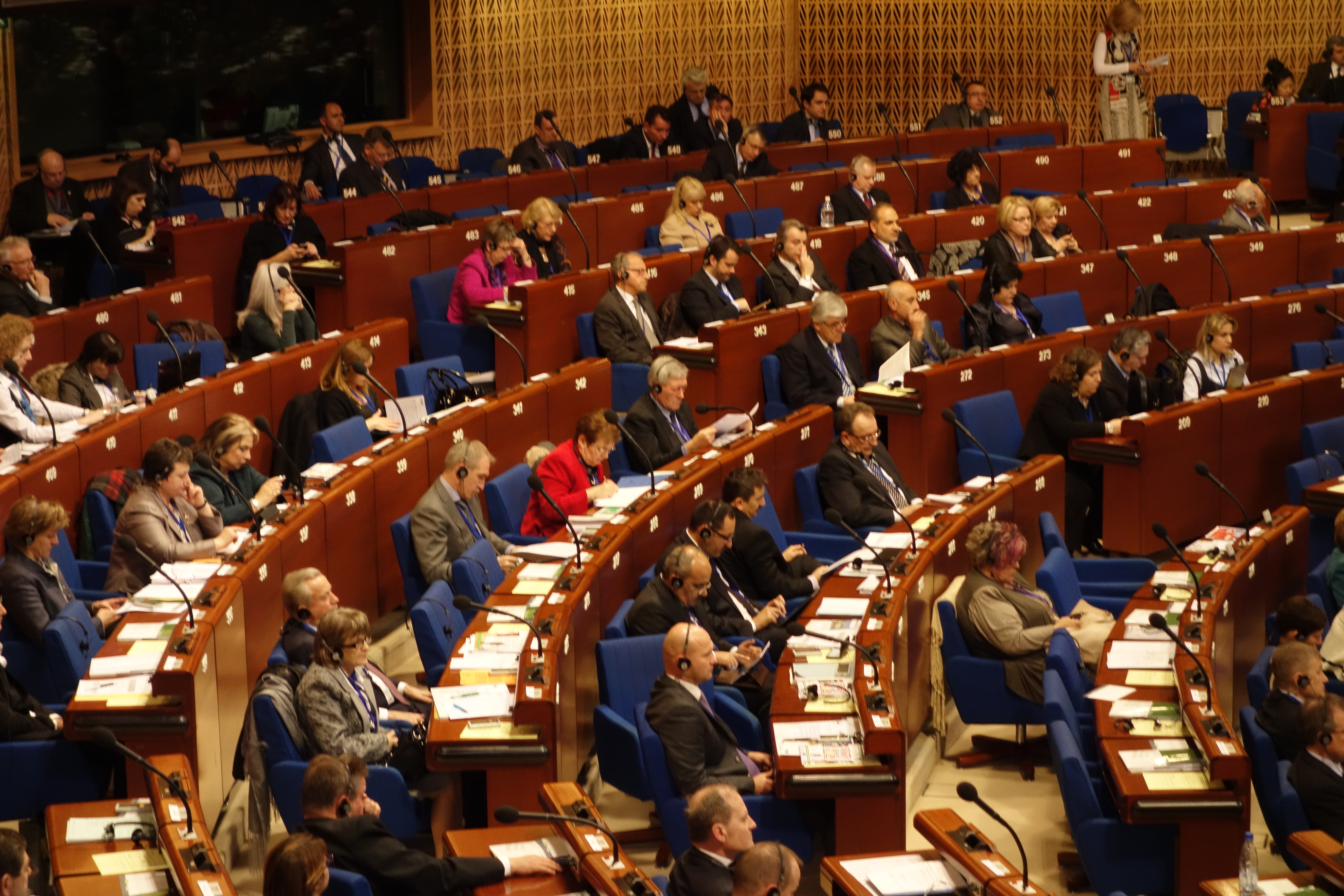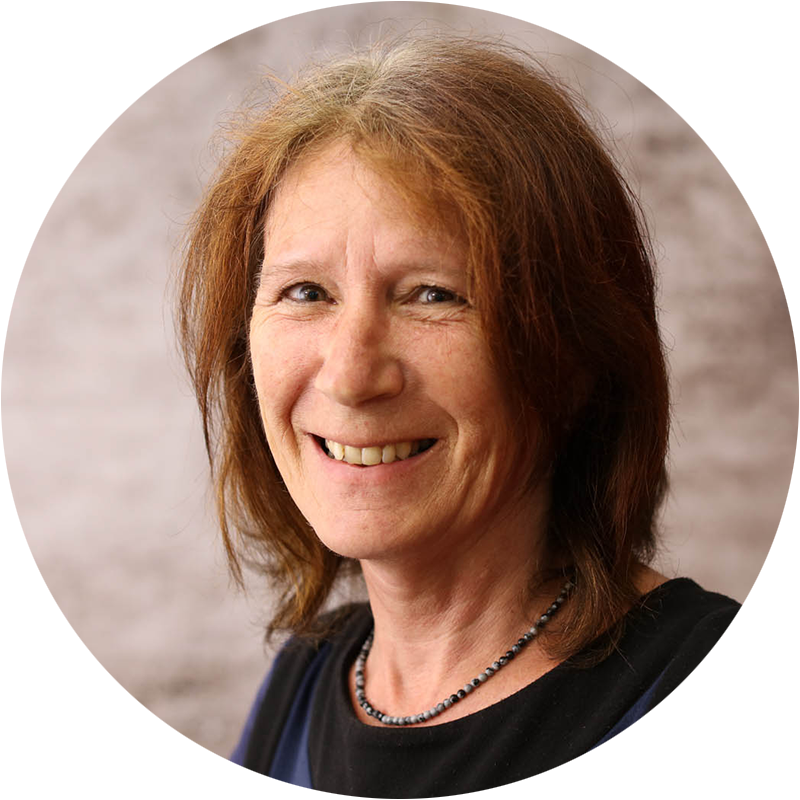Strasbourg puts experience in perspective

While Swiss parliamentarians regularly participate in debates at the Council of Europe, representatives from the country’s communes and cantons also make the journey to Alsace to exchange with colleagues from other nations.
It’s not easy finding your way around the Council of Europe’s gleaming steel and glass home on the outskirts of Strasbourg. For Beat Hirs, mayor of Rorschacherberg in canton St Gallen, it isn’t a problem though.
He pulls out his electronic badge, opens a door, moves past dozens of offices along a lengthy corridor and ends up in a short time inside the council chamber, the heart of Europe’s human rights watchdog.
This is the fourth year he has travelled to France as part of Switzerland’s 12-member delegation to the council’s Congress of Local and Regional Authorities. The congress meets twice a year to discuss among other things democracy, the rule of law, citizens’ rights and the autonomy of municipalities and regions.
New friends
For the opening of the year’s first session, the chamber is half empty. The 200 or so representatives from 47 countries who have made it aren’t seated according to their country or party preferences, but alphabetically.
So somebody from Greece could be next someone from Turkey, a Serb next to an Albanian, a Swiss next to a Ukrainian. This organisation allows – or perhaps forces – people to talk, not such a bad thing reckons Hirs.
The 24th session of the congress is focused on the financial crisis in Europe and the challenges for local and regional authorities. Hirs says times are tough.
“Minorities such as the Roma, are being pushed aside, and without money everything is becoming more difficult. Many local authorities are forced to slash social projects as you can hear in talks with colleagues from Spain or Italy,” he told swissinfo.ch.
In the current situation, discussions also often quickly focus on values, says Philippe Receveur, canton Jura’s construction and environment minister and head of the Swiss delegation.
“Funding cuts mainly affect regions, which get less money as cost-cutting measures are implemented and which particularly suffer from this situation,” he adds.

More
European watchdog is Swiss ʻto the coreʼ
Democracy
The state of democracy also varies substantially between the council’s member states and budgets are much the same. Switzerland, in comparison to others, is in a fairly enviable situation.
“If you look more closely though, we have much the same problems when it comes to local politics, such as building roads, schools and libraries,” says Hirs. “That’s why it’s important to look after local democracy and guarantee strong structures. That helps make countries more resistant to crises, more robust and more aware of their citizens preoccupations.”
Contrary to most countries, Swiss communes have a bigger say according to Receveur. “That clearly demonstrates the link between a democracy that is close to its citizens and wellbeing,” he points out.
Citizens’ rights in Switzerland never cease to amaze the delegation’s colleagues from other nations. “Even in Germany and Austria they can hardly believe that Swiss municipalities can set their own taxes,” says Hirs.
Switzerland’s system of direct democracy is also admired across Europe, but sometimes it is also criticised, mainly because of the lack of transparency surrounding political funding.
“It’s not really understood why party funding remains hidden from view. I can understand that on the outside and for my colleagues from other countries, it may seem suspicious,” admits Hirs.
Good relations
After the plenary session, the Swiss delegation meets for lunch. Its members come from the southern Italian-speaking Ticino, French-speaking western Switzerland and German speakers from the rest of the country.
Despite their political differences, they respect each other, talking in a variety of languages. In English, if necessary, with the colleague from Cyprus at the next table.
Thanks to their language skills, the Swiss have good relations with other delegations, especially those who share one of the national languages.
Pearl Pedergnana joined the Swiss delegation in 2012. “We have really benefited so much,” says the councillor from Winterthur, a city near Zurich.
“For the past few decades, I have given everything for local politics. Here, I’m finding out what the financial crisis means for municipalities and how much autonomy we have back home. Strasbourg gives me the opportunity to get an outsider’s view of our system.”
Dario Ghisletta, who has been part of the delegation for 12 years, says it has broadened his outlook. The former deputy mayor of Bellinzona in canton Ticino now calls himself first and foremost a European and citizen of the world.
“There is a lot that can be learned from other parts of the world,” he points out. “The Council of Europe is about the basic principles of democracy so you have to put ideology to one side and be intercultural, interreligious and impartial.”
Outreach
Democracy, and not just in Europe, is regularly discussed. Receveur has been mandated by the council to promote democratic reforms and decentralisation in Morocco and Tunisia by accompanying the governments and parliaments of the two countries.
“North Africa is not a part of Europe, but they are our neighbours,” he says. “It’s in our interest to help them make the transition towards a more democratic society.”
The congress was created in 1994 as part of the Council of Europe. There are 318 members and 318 alternates who must be elected to of a local or regional authority or a related parliament.
The congress works in favour of local administration, democracy as well as the autonomy of municipalities and regions. It regularly publishes country reports on the state of democracy and also delegates election observers.
The Swiss delegation has six members and six alternates. It is presided by Philippe Receveur for the period between 2012 and 2015. It’s vice-president is Beat Hirs.
The Council of Europe (COE), Europe’s human rights watchdog, was founded in 1949 by ten western European nations.
Switzerland joined the COE on May 6, 1963 and is celebrating the 50th anniversary of its membership this year.
Besides its delegation, Switzerland also provides a judge for the European Court of Human Rights.
There is also a permanent Swiss representative in Strasbourg, with Switzerland providing CHF5.3 million towards the council’s annual budget.
(Adapted from German by Scott Capper)

In compliance with the JTI standards
More: SWI swissinfo.ch certified by the Journalism Trust Initiative

You can find an overview of ongoing debates with our journalists here. Please join us!
If you want to start a conversation about a topic raised in this article or want to report factual errors, email us at english@swissinfo.ch.